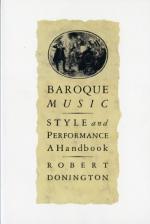|
This section contains 972 words (approx. 4 pages at 300 words per page) |

|
| 1596 | René Descartes, who will try to raise philosophy into a science, is born near Tours, France. |
| 1601 | The French thinker Pierre Charron publishes his De la sagesse (On Wisdom), a work that argues, like Montaigne's Renaissance essays, that absolute knowledge of God cannot be established from human reason. It is an example of the skepticism in philosophy prevalent in early seventeenth-century Europe. |
| 1609 | The German astronomer Johannes Kepler publishes his Astronomia Nova. The work modifies Copernicus's heliocentric or sun-centered theory of the universe by showing that the planets move in elliptical, rather than circular orbits. |
| 1610 | Galileo's The Starry Messenger is published. The work tells of his recent observations of the heavens made with the aid of a telescope. |
| 1620 | Sir Francis Bacon's Novum Organum (The New Organon) defends inductive reasoning and empirical observation against the methods of traditional scholasticism. One year later Bacon will be... |
|
This section contains 972 words (approx. 4 pages at 300 words per page) |

|




